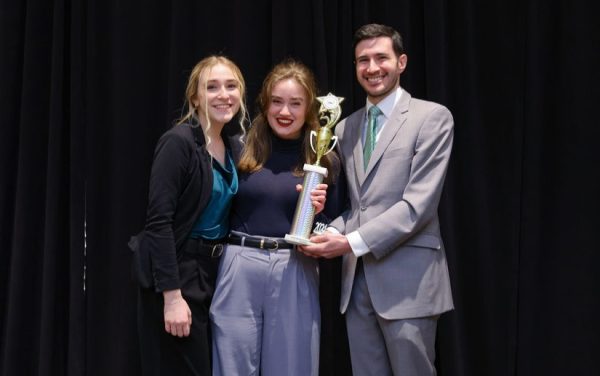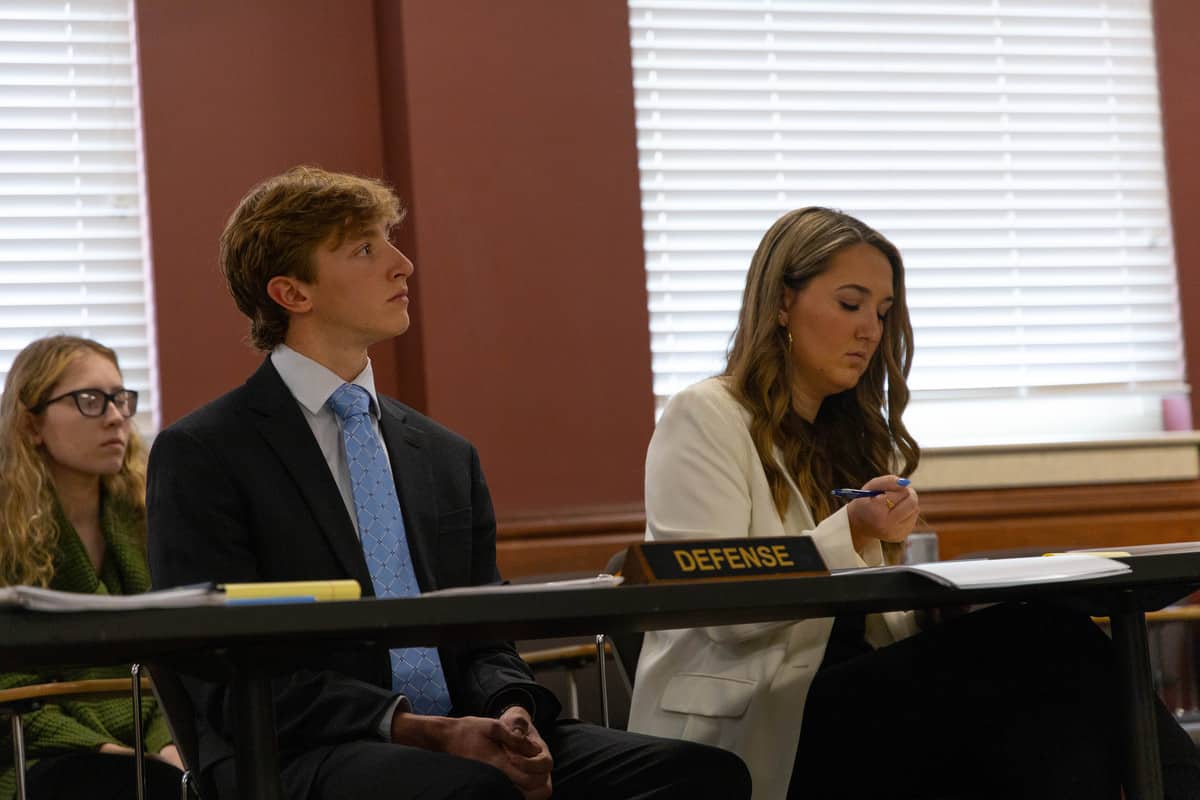Editor’s note: This story was updated to correct a misquote regarding the relationship between UA Mock Trial Association’s relationships with Emory University and Georgia Tech.
The UA Mock Trial Association is a student-led organization that competes against other mock trial college teams from across the country every year. They have battled hard this year to surpass teams at regionals and at the upper-level division. Because of their hard work, they will be going to nationals for the first time in six years.
In the realm of mock trial, teams are given a 200-page packet detailing either a criminal or civil case that will make an appearance in the courtroom, explained Elena Dixon, the organization’s president and a senior majoring in political science and economics. Together as a team with individual roles, they practice how they will present their case to the presiding judges. In court, they are given the opportunity to test different case theories based on rules and court cases not dissimilar from real-life U.S. law, all taking place in a fantasy setting dubbed the “Midlands.”
According to AdmissionSight, there are around 700 teams from 400 colleges and universities from across the nation that compete. Each year the American Mock Trial Association hosts 32 regionals, eight Open Round Championship Series tournaments, and then the nationals competition that will ultimately decide that year’s winning team.
Dixon estimated that out of the nearly 700 teams that compete at regionals, only 192 schools move forward to compete at ORCS. The competition is further slimmed down to 48 teams who advance to compete on the national level. The last time The University of Alabama’s mock trial team went to nationals was in 2018, just before the pandemic hit.
Olivia Lake, vice president and a senior majoring in criminology, and Daniel Braun, a senior majoring in mathematics and psychology, both agreed that the impact the pandemic had on the teams was the loss of generational knowledge. When mock trial competition took place virtually, the same skills did not apply on the screen as in person. Since then, the UA mock trial team has worked hard to build back that knowledge base.
“We found that watching a lot of good mock trials is how you get good at mock trial,” Lake said.
At every competition the team takes the opportunity to learn from its opponents, observing what they do. That is one of the main reasons members look forward to nationals this year. By simply being there, the valuable knowledge other schools have will help them to return for another season. Both Dixon and Lake hope that this year is the beginning of turning the UA Mock Trial Association into one that can go to nationals consistently.
In the mock trial world of competition, Alabama is the underdog. “Teams would consider themselves lucky if they got to go against us,” Dixon said. But this year was different. Not only did the underdogs win first bid out, which in layman’s terms is essentially winning first place, but they beat the fifth-best team in the country. Immediately after, the tables turned.
“I remember walking back into the courthouse and all around me was just whispers of the word, ‘Alabama.’ Every team was talking about us,” Dixon said. This, she hopes, is the beginning of an era of mock trial for the University.

Braun said that being underestimated reflected negative stereotypes about college students from the South not being able to keep up with the Ivy Leagues. Moreover, Lake said elitism and the expectation to win often goes to the “perennial powerhouse” universities. But more than just skill, mock trial is truly a collaborative effort. The Alabama mock trial team was surrounded with support from very good programs as well and has good relationships with Emory University and Georgia Tech. When Braun got food poisoning in South Carolina, during the last round of ORCS, a freshman had to take his place with only 30 minutes to prepare. The team has also learned to play to their strengths.
“We’ve learned our biggest strength is our charm and being personable,” Braun said, who learned he performs best when he feels he is advocating for something.
The team expects to gain a lot from nationals this year which will be in Chicago, hosted by the University of Chicago, later this month. The final 48 teams are split into two divisions. The University of Alabama will be competing in the Judge Darrow division against notable schools such as Brown, UCLA, Princeton and Georgetown. One team from each division will then compete for victory. If the University of Alabama team wins nationals, it will be an opportunity to network and connect with lawyers from all over the country.
Dixon, Lake and Braun all professed total faith in their team and believe it is one of the best groups they have had in UA mock trial history.









